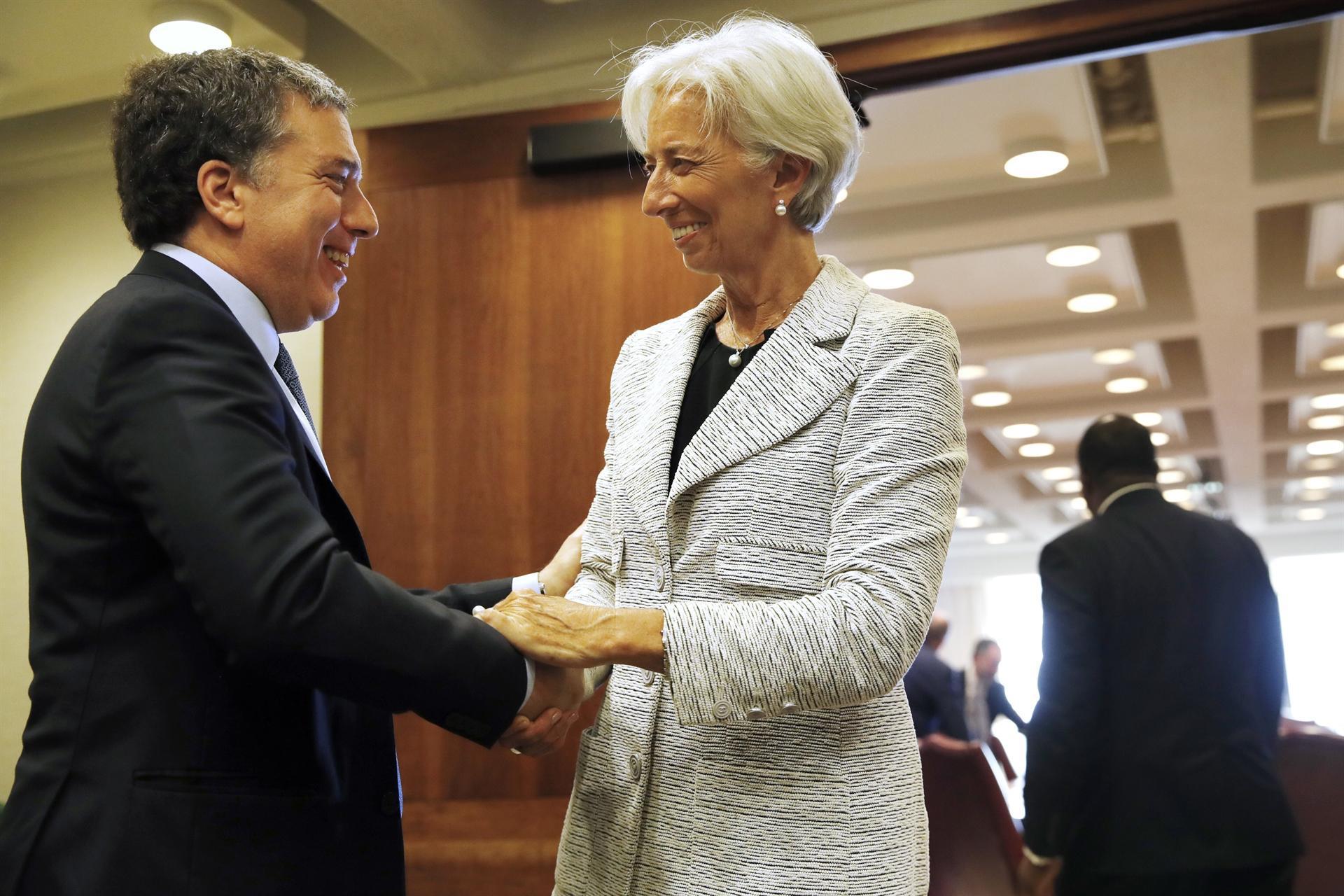
The International Monetary Fund (IMF) agreed with Argentina to a standby loan of $50 billion over a three-year period, Finance Minister Nicolas Dujovne said on June 7.
“We have looked to the IMF to avoid a crisis,” the minister told a news conference in Buenos Aires, adding there would be an “immediate” payment of $15 billion.
“We are engaged in the construction of a normal country. It is support for our program, with the goal of growing the economy and decreasing inflation and poverty,” he said.
The Argentine economy climbed 2.8 percent in 2017, but growth slowed after a crisis of confidence that resulted in the loss of over $10 billion of central bank reserves and saw the peso plunge by nearly 20 percent.
That led Latin America’s third-largest economy to ask for IMF assistance to help it face mounting inflation, budget deficits and a weakening currency.
IMF managing director Christine Lagarde praised the agreement -- still subject to approval by the institution’s executive board -- and Argentina’s economic plan.
“I am pleased that we can contribute to this effort by providing our financial support, which will bolster market confidence, allowing the authorities time to address a range of long-standing vulnerabilities,” she said in a statement.
That effort includes measures to balance Argentina’s budget, lower inflation and ensure independence for the central bank -- while setting a floor on social spending and introducing tax reform.
“We are going to reinforce the autonomy of the central bank,” its chairman, Federico Sturzenegger, said at the news conference alongside the finance minister Dujovne.
Meanwhile, Dujovne added that Argentina has set a target of 17 percent inflation for 2019, 13 percent for 2020 and 9 percent for 2021.
Argentina’s annual inflation target was 15 percent for 2018, but had reached almost 10 percent by April, and forecasts suggest it will hit 27 percent.
“We are going to have increased inflation,” Dujovne acknowledged.
The government has so far not managed to limit persistently high inflation, which has exceeded 20 percent for more than a decade, a key aim of President Mauricio Macri’s center-right government.
A path to reduce the budget deficit and balance the budget by 2020 was also agreed with the IMF.
The agreement revises the budget deficit target, before debt payment, to 2.7 percent of GDP in 2018, compared to 3.2 percent previously forecast. The eventual goal is a 0.5 percent surplus in 2021.
Opinion polls said as many as 75 percent of Argentinians opposed any agreement with the IMF, which many link to painful memories of past economic and social crisis, which culminated in 2001 with a sovereign debt default, for which many Argentines blame the IMF.
Thousands demonstrated in Buenos Aires in late May against an IMF bailout, marching to government offices and brandishing anti-IMF banners.
Christopher Sabatini, a lecturer of international relations and policy at Columbia University, nonetheless described the loan as a necessary risk.
“Given the way in which the IMF has been maligned in Argentina, it is politically risky,” he told AFP. “Economically, with reserves as low as they are, it’s a necessity.”
“It’s a stop gap measure to back up the currency,” he added.
“The matter is whether Macri’s reforms will restore growth, reduce inflation and make investors and consumers feel confident. That’s a different matter than the IMF loan.”
News of the assistance package drew praise from Washington, meanwhile, where Treasury Secretary Steve Mnuchin expressed support for Macri’s “vision.”
“We believe that Argentina’s economic and financial policies, including measures to enhance growth and protect the most vulnerable, warrant the strong backing of the international community,” he said.